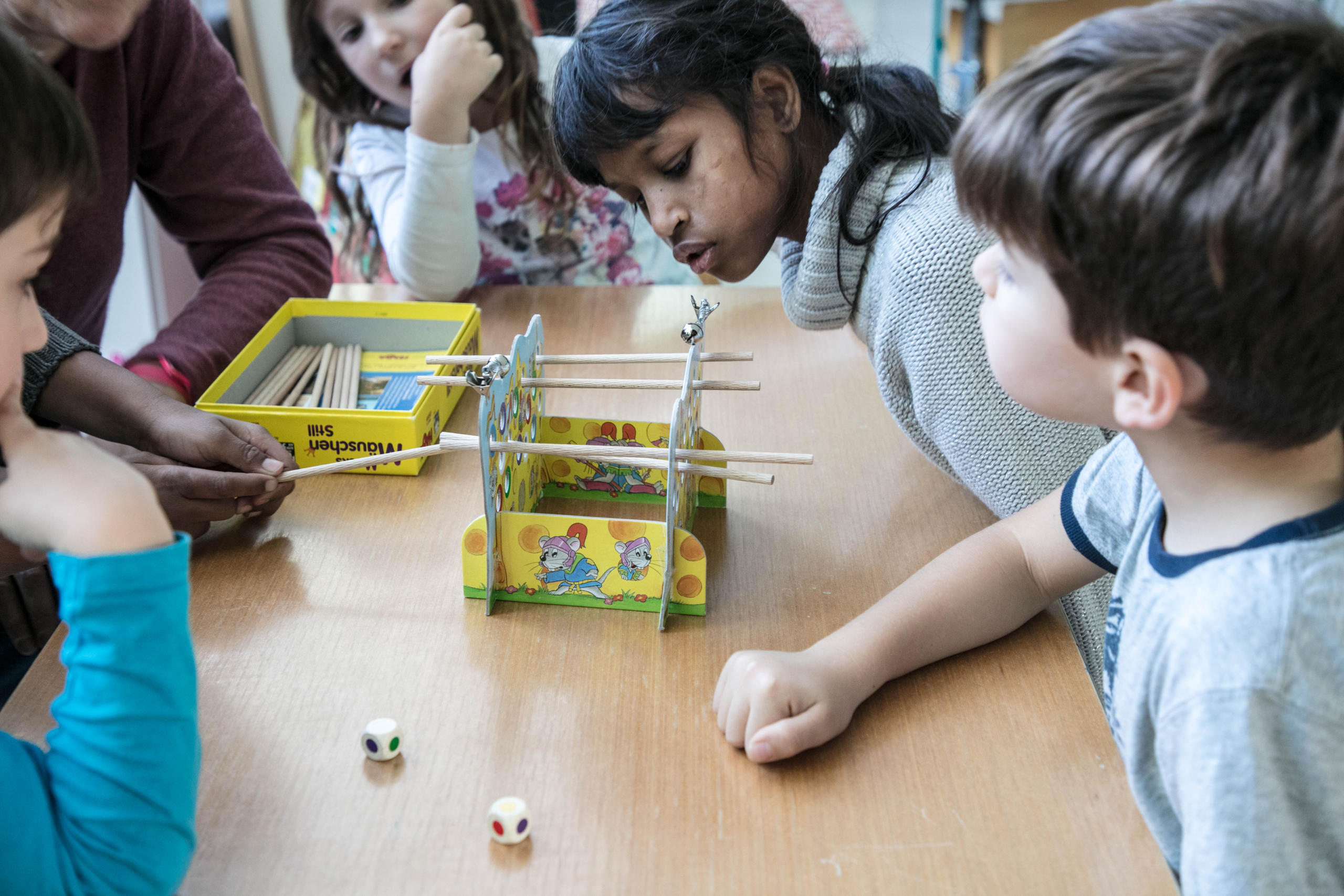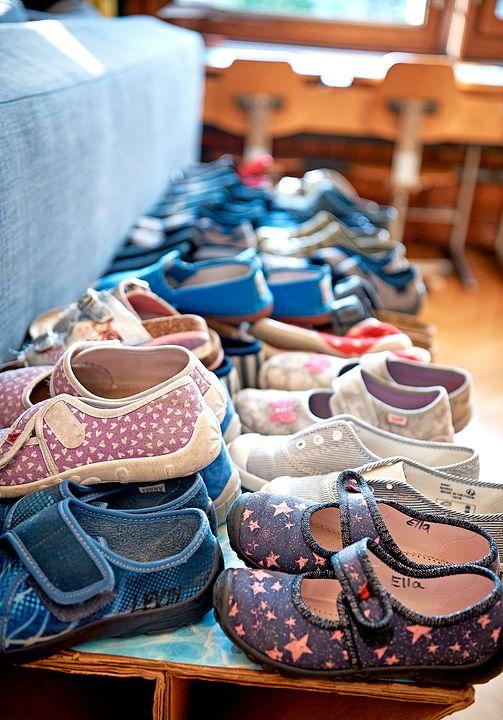What can be done about disruptive kids?

Teachers are dealing with a rise in disruptive pupils in Switzerland, with problems already starting in kindergarten, reports say. But opinions are divided about what can be done.
Switzerland’s integrative (inclusive) school model, introduced about a decade ago, means that many children with behavioural problems – classified as “emotional and social special needs” – attend regular schools, as opposed to being taught in in special needs classes or schools as before.
Special needs education
In Switzerland, special needs education is set down in law and has been the responsibility of the cantons, who are in charge of educational matters in Switzerland, since 2008. As each canton has drawn up its own concept, it has led to differences in how it is applied. Special needs education covers children with a range of disabilities and learning difficulties. There’s also help for gifted pupils and for those who do not speak a local language.
But recent media reports have questioned whether the system is really working, with stories of teachers having to deal with pupils who are disruptive in class, throw furniture about or who are violent.
Debate reignited
The debate was reignited by an article in the SonntagsZeitung newspaper External linkwhich cited a study in Zurich and the nearby city of Winterthur, showing that one in five pupils was classified by staff as having behavioural problems (950, or 22% of pupils in the schools surveyed). The study involved 450 school staff, including 250 teachers, and 60% of classroom teachers said that unruly students were their biggest burden.
Study leader Reto LuderExternal link, professor of special educational needs at the Zurich University of Teacher Education,External link said that the findings, originally published in 2018, were not representative of the situation across Switzerland because the study was mainly limited to schools in Zurich and Winterthur.
“Nevertheless, the findings are compatible with international findings from other studies as well as consistent with the actual knowledge on disruptive behaviour in schools,” he told swissinfo.ch.
Unruly kindergarten kids
Other cantons are also reporting problems, the SonntagsZeitung said – even in kindergarten. It cited as-yet unpublished figures from canton Geneva’s education department, which found more disruptive behaviour among four-year olds than 13 and14 year-olds. Other cantons, like Basel City, have also reported problems among younger pupils.
A case: ‘Philipp’
Four-year-old Philipp (not his real name), used to ignore or defy his teacher’s requests at a kindergarten in an outlying district of Zurich. He also provoked other pupils and destroyed their arts and crafts work, his former teacher told the SonntagsZeitung. Matters came to a head after he became very angry, hitting others and destroying toys. The teacher refused to have him for the second kindergarten year and Philipp was then put into a smaller kindergarten where he could receive more intensive support.
“Today already around a fifth of kindergarten and primary school pupils are very challenging to teach,” said Jean-Michel Héritier, of canton Basel City’s teaching associationExternal link, in the article. He attributed the increase to the phasing out of special classes for disruptive pupils but also to households where children spent a lot of time in front of screens rather than with their peers. This results in low frustration and concentration thresholds, he said.
French-speaking regions catching up
Whereas the problem of unruly pupils has been recognised for some years in German-speaking Switzerland, the French-speaking part is only now catching up.
A report in Le Matin DimancheExternal link, which ran in parallel to the SonntagsZeitung’s article, flagged up how canton Fribourg had just started a special support class for these students. Vaud, for example, is intending to gradually free up CHF12 million ($12 million) to support parents, teachers and social and educative services.
What can be done
Beat Zemp, president of the German-speaking Federation of Swiss TeachersExternal link (LCH), believes that the integrative system is in danger. A recent surveyExternal link published by the LCH and its French-speaking counterpart, found that for 90% of teachers, disruptive pupils were their main problem. It pointed to teachers and the mainstream school system being “pushed to their limits”.
+ Our report on the survey’s findings
“We need more special needs teachers, more social workers and to ease the burden on teachers so that there is enough time for integrative schooling,” Zemp told the SonntagsZeitung in a follow-up article in May. He ruled out a blanket return to special needs classes, but felt exceptions could be made in some cases, after a “careful assessment”.
Those in favour of integrative schooling argueExternal link that no child should endure the stigma of special needs classes. Being included is often the best for these children, they add, as these students are better able to integrate into working life later on.
The Zurich and Winterthur study also pointed to lessons that could be learned. “The study showed that disruptive behaviour is a major challenge for many teachers but can be successfully addressed with evidence-based interventions within an inclusive school setting,” Luder said. These can range from school programmes addressing disruptive behaviour to individual measures.
These types of interventions, the study said, can lead to a better understanding of the situation, new courses of action and improved relations between teachers and pupils.

In compliance with the JTI standards
More: SWI swissinfo.ch certified by the Journalism Trust Initiative













You can find an overview of ongoing debates with our journalists here . Please join us!
If you want to start a conversation about a topic raised in this article or want to report factual errors, email us at english@swissinfo.ch.